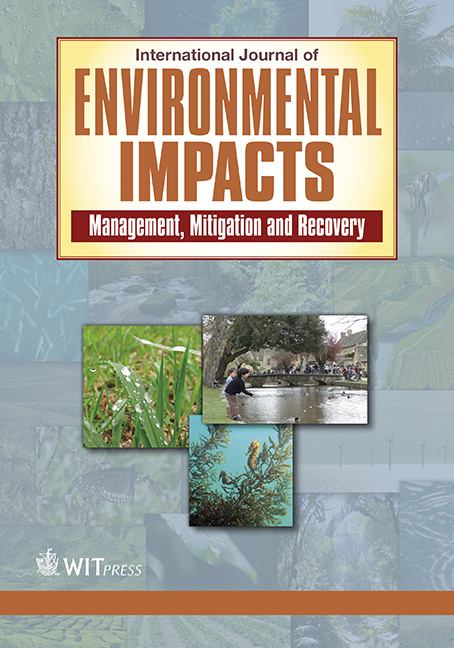How does targeted grassing of arable land influence drainage water quality and farm economic indicators?
Price
Free (open access)
Volume
Volume 1 (2018), Issue 3
Pages
8
Page Range
344 - 352
Paper DOI
10.2495/EI-V1-N3-344-352
Copyright
WIT Press
Author(s)
ANTONÍN ZAJÍCEK, PETR FUCÍK, RENATA DUFFKOVÁ & JANA MAXOVÁ
Abstract
A 7-year experiment with grassing of arable land in the catchment recharge zone was conducted in a small (60 ha) agricultural tile-drained catchment (Bohemian – Moravian Highlands, Czech Republic). Together with water quality, the effect of increasing grassland area on selected farm economic indicators was evaluated. The area for grassing was delimitated by the method of relative soil infiltration vulnerability based on the analysis of five-digit valuated soil ecological unit code, available as .shp file at the scale 1:5000. Effect of grassing on farm budget was estimated by comparison of revenues (crop sales and subsidies) with technology costs of three different grassland area proportion within the agricultural land managed by the farm (1 200 ha). It was proved that nitrate concentrations in drainage water were influenced predominantly by the land use of the recharge zones within the drainage subcatchment. The grassing of arable land focused into proper catchment area (recharge zone) demonstrated a significant decrease in both NO concentrations and N loads by 35% and 25%, respectively. On the other hand, increasing areas of grasslands would lead to decrease of landscape productive service, farm turnover and profit and the bigger dependence on subsidies. That´s why it is necessary to consider the non-productive functions of grasslands also as public service, taking into account the savings in water cleaning costs and the price of increased water retention. Presented approach come forward when setting the subsidies dealing with soil and water protective measures in agrarian landscape.
Keywords
nitrate concentration subsidies, recharge area, targeted grassing, technological costs, tile drainage




